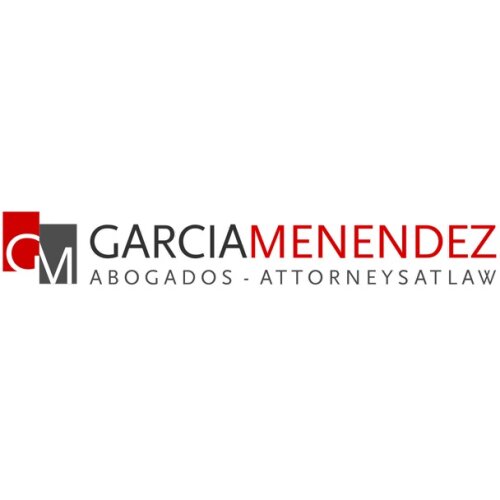Best Real Estate Due Diligence Lawyers in Argentina
Share your needs with us, get contacted by law firms.
Free. Takes 2 min.
Free Guide to Hiring a Real Estate Lawyer
Or refine your search by selecting a city:
List of the best lawyers in Argentina

About Real Estate Due Diligence Law in Argentina
Real estate due diligence in Argentina is a comprehensive process that examines various aspects of a property to ensure a secure transaction. It involves a thorough review of legal, financial, and physical conditions of real estate assets. This practice is particularly crucial given Argentina's dynamic property market, where legal complexities and economic fluctuations are common. Professionals conduct due diligence to verify property titles, assess zoning regulations, evaluate environmental concerns, and inspect the overall condition of the property. This holistic review safeguards investment by identifying potential risks and liabilities associated with the property.
Why You May Need a Lawyer
Engaging a lawyer for real estate due diligence is essential in several situations:
- Property Title Verification: Ensuring that the property's title is clear and free from disputes or encumbrances such as liens or mortgages.
- Understanding Local Regulations: Navigating complex zoning laws and regulatory frameworks that can significantly impact property use and development.
- Contractual Safeguards: Drafting and reviewing sales agreements to ensure all parties' rights are protected and conditions are met.
- Negotiating Terms: Assisting in negotiations between buyers, sellers, and third parties to secure favorable terms.
- Handling Disputes: Addressing any disputes or claims that arise during the buying or selling process.
- Foreign Buyer Assistance: Guiding non-residents through Argentina's specific requirements and restrictions on property investment.
Local Laws Overview
Argentina's real estate laws are governed by both federal and provincial regulations, encompassing several key aspects:
- Codigo Civil y Comercial: The Civil and Commercial Code of Argentina, which provides the foundation for property transactions, including contracts, leases, and sales.
- Zoning Laws: Municipal regulations dictate what can be developed and how properties can be used within specific localities.
- Foreign Ownership Restrictions: Laws that limit foreign ownership of properties in certain areas, particularly border regions.
- Property Registration: Required to ensure property rights are officially recognized and protected under Argentine law.
- Tax Implications: Various taxes apply to property transactions, such as property transfer tax (ITP) and stamp duty.
- Environmental Regulations: Laws concerning environmental assessments and conservation, especially for land intended for agricultural or industrial use.
Frequently Asked Questions
What is the first step in conducting due diligence on a property?
The first step typically involves verifying the property's legal title to ensure it is clear and owned by the seller without any encumbrances.
Are there any restrictions on foreign ownership of real estate in Argentina?
Yes, there are certain restrictions for foreigners, particularly regarding properties near border areas. Legal advice is highly recommended to navigate these regulations.
How long does the due diligence process take in Argentina?
The due diligence process can take anywhere from a few weeks to several months, depending on the complexity of the transaction and the thoroughness of the investigation required.
What are the risks of not conducting proper due diligence?
Failing to conduct due diligence can result in uncovering unforeseen issues such as outstanding debts, legal disputes, zoning problems, or undisclosed liabilities.
Who typically pays for due diligence costs?
It is generally the buyer who incurs the costs of due diligence, as they are the party seeking to verify the property’s conditions and legality.
Can due diligence affect the purchase price of the property?
Yes, if due diligence reveals issues or concerns, it can potentially be used to negotiate a lower purchase price or adjust the terms of sale.
Is a site visit part of the due diligence process?
Yes, physical inspections of the property are a crucial component of due diligence to assess condition and verify information provided by the seller.
What should I look for in a due diligence report?
A comprehensive due diligence report should include legal title confirmation, regulatory compliance, environmental assessments, and potential risks associated with the property.
Do I need a local lawyer if I am a foreign buyer?
Yes, hiring a local lawyer familiar with Argentine real estate laws and regulations is highly recommended to navigate the legal complexities and ensure compliance.
What if the due diligence reveals problems with the property?
If issues are identified, you have the option to renegotiate terms, request that the seller resolve the issues, or withdraw from the transaction if it is untenable.
Additional Resources
For further assistance, consider consulting the following resources:
- Ministry of Justice and Human Rights: Provides information on legal procedures and property laws in Argentina.
- Argentine Notarial College: A useful resource for understanding the role of notaries in real estate transactions.
- Professional Chambers: Such as the Argentine Association of Real Estate Lawyers, offering directories of qualified legal professionals.
- Local Municipalities: For zoning laws and regulations specific to each locality.
Next Steps
If you need legal assistance in real estate due diligence:
- Consult with a Lawyer: Seek a consultation with a real estate lawyer experienced in Argentine law.
- Gather Documentation: Prepare any documents related to the property in question to provide your legal advisor with comprehensive insights.
- Schedule a Due Diligence Review: Work with your lawyer to plan and execute necessary checks and investigations.
- Discuss Findings: Hold discussions with your legal team to understand the outcomes and implications of the due diligence findings.
- Plan Your Action: Based on the due diligence results, determine how to proceed with either negotiating terms, addressing issues, or moving forward with the purchase.
Lawzana helps you find the best lawyers and law firms in Argentina through a curated and pre-screened list of qualified legal professionals. Our platform offers rankings and detailed profiles of attorneys and law firms, allowing you to compare based on practice areas, including Real Estate Due Diligence, experience, and client feedback.
Each profile includes a description of the firm's areas of practice, client reviews, team members and partners, year of establishment, spoken languages, office locations, contact information, social media presence, and any published articles or resources. Most firms on our platform speak English and are experienced in both local and international legal matters.
Get a quote from top-rated law firms in Argentina — quickly, securely, and without unnecessary hassle.
Disclaimer:
The information provided on this page is for general informational purposes only and does not constitute legal advice. While we strive to ensure the accuracy and relevance of the content, legal information may change over time, and interpretations of the law can vary. You should always consult with a qualified legal professional for advice specific to your situation.
We disclaim all liability for actions taken or not taken based on the content of this page. If you believe any information is incorrect or outdated, please contact us, and we will review and update it where appropriate.
Browse real estate due diligence law firms by city in Argentina
Refine your search by selecting a city.















